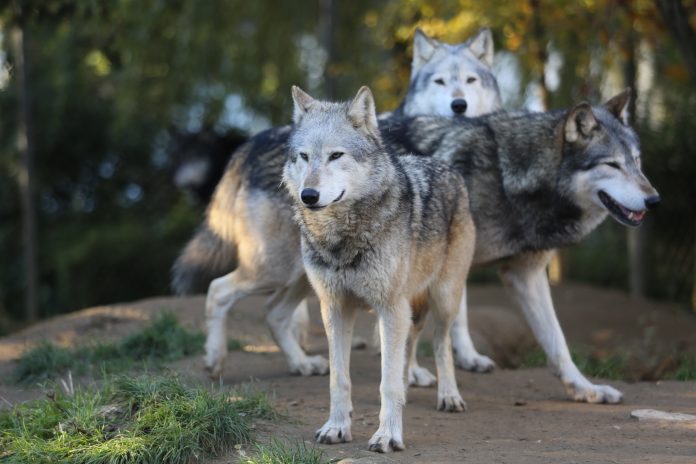Animal campaigners at Humane Society International/Europe have warmly welcomed a decision by the European Commission to enable farmers to receive 100 percent compensation for damages caused by wolves and other large carnivores, and to fully reimburse them for investing in preventative measures to deter such predator attacks.
Large carnivores exist in population pockets in many EU member states; wolves in France, Germany, Poland and other eastern European countries, Italy, Spain and Scandinavia; Eurasian lynx in Poland, the Alps, the Jura and Vosges mountains and the northern Balkans; and brown bears in countries including Austria, Italy, France, Romania, Poland, Slovakia, Serbia, and Scandinavia.
In some member states, a lack of natural prey combined with habitat loss and unprotected livestock, can contribute to attacks on domestic animals by these large carnivores, whilst in others, conflict lies in competition with people for their wild prey as well as the human population’s fear of coexisting with a large predator. These human-wildlife conflicts can lead to these protected large carnivores being shot or otherwise killed.
Ruud Tombrock, HSI/Europe’s executive director, issued the following statement in response to this decision: “It is crucial that we achieve coexistence with wolves and other large carnivores in Europe. After centuries of persecution, these protected species are now rebounding following the EU’s sterling conservation efforts. This does, however, create opportunities for human-wildlife conflicts to occur. All too often farmers want to reach immediately for their rifles when flocks or herds are attacked.
They should indeed be fully compensated for animal losses and veterinary costs incurred, yet it is also important that preventative measures are taken to reduce the risk of such predator attacks from happening in the first place. We hope that state aid to cover the costs of preventative measures, such as electric fencing or guard dogs, will encourage more farmers to seek to mitigate these conflicts and move towards a more peaceful coexistence with these charismatic predators.”
There has recently been a recurring societal and political debate over ways to mitigate and prevent conflicts between large carnivores and livestock farmers, landowners, hunters and local communities. Regulatory measures and effective techniques have been developed and tested in order to effectively mitigate wildlife conflicts and help humans to successfully coexist with large carnivores in the long term.
For example, the installation of electric fences or fladry to protect herds from predator attacks, the use of guard dogs, the deployment of intervention units and experts on predators in problematic areas are some of the solutions that have demonstrated a high success rate in minimising predator attacks on herds. HSI/Europe hopes that the decision to grant state aid for such preventative measures will encourage their adoption on a wider scale.
Large carnivores, namely wolves, bears, lynxes and wolverines, are protected species in the EU and are listed in the Annexes of the EU Habitats Directive (Council Directive 92/43/EEC).
The state aid rules regarding compensation for damages caused by protected animals, such as wolves, are laid down in the European Union Guidelines for State aid in the agricultural and forestry sectors and in rural areas 2014 to 2020. Whereas previously, only 80 percent of costs have been paid, farmers can now receive 100 percent reimbursement for their costs.
Since the establishment of LIFE (the EU funding programme for the environment) in 1992, more than 40 projects on coexistence with large carnivores have been carried out with EU funding. While these projects have focused primarily on awareness raising and the protection of livelihoods, they have also played a valuable role in testing and implementing ways of managing and minimising conflicts between large carnivores and humans.

